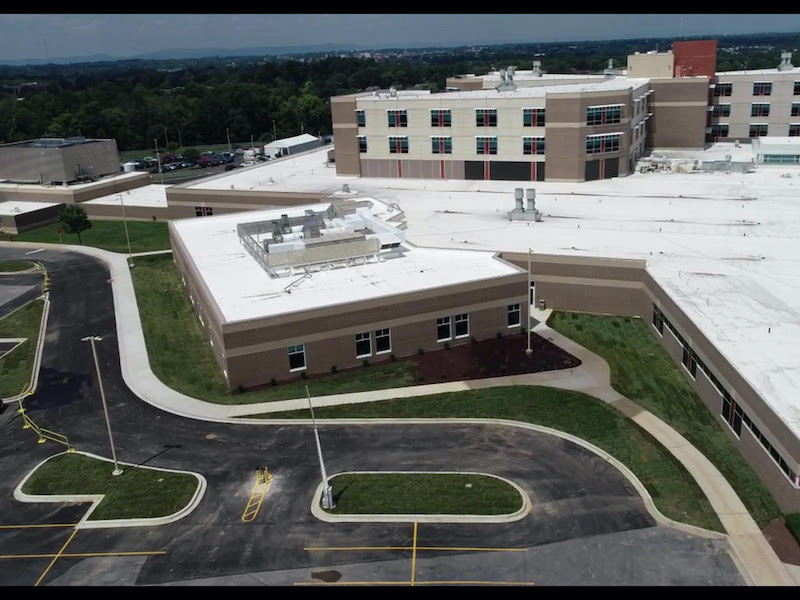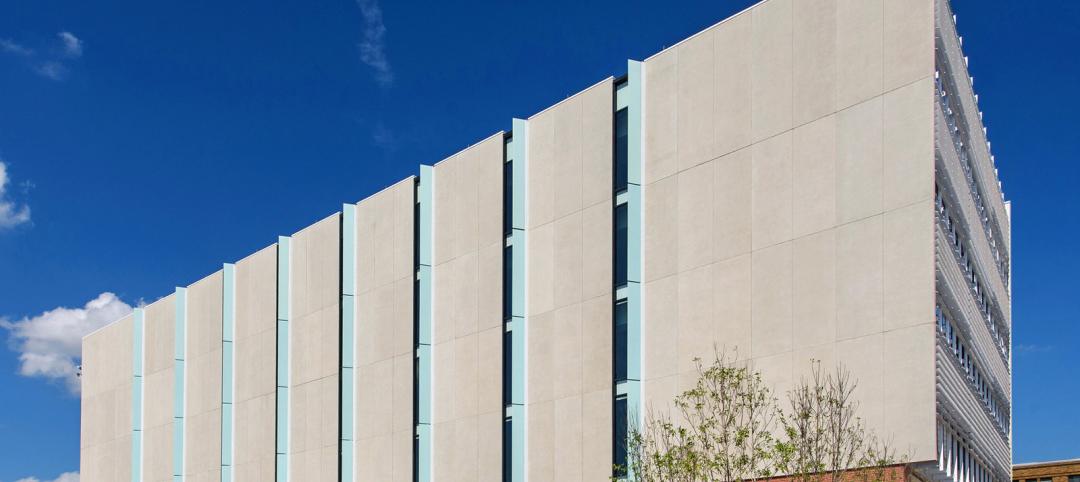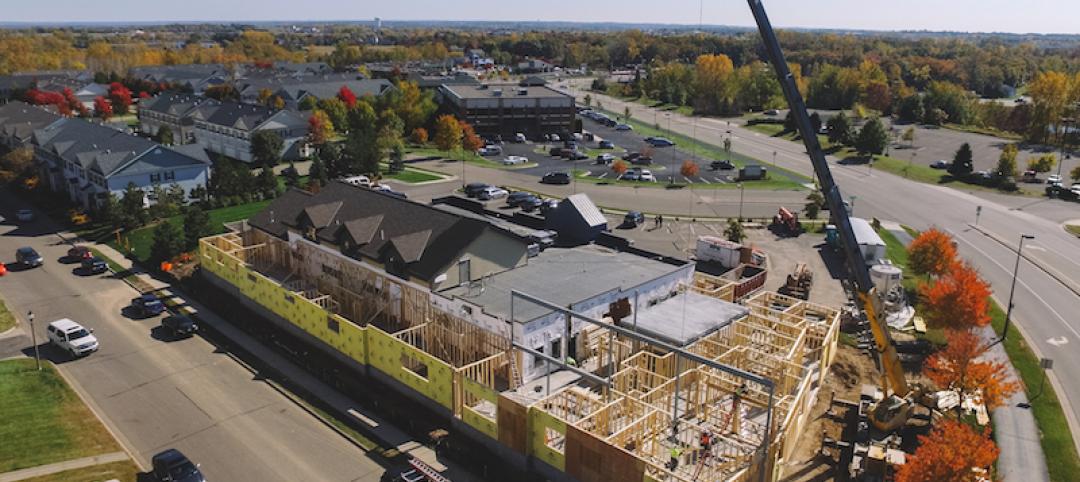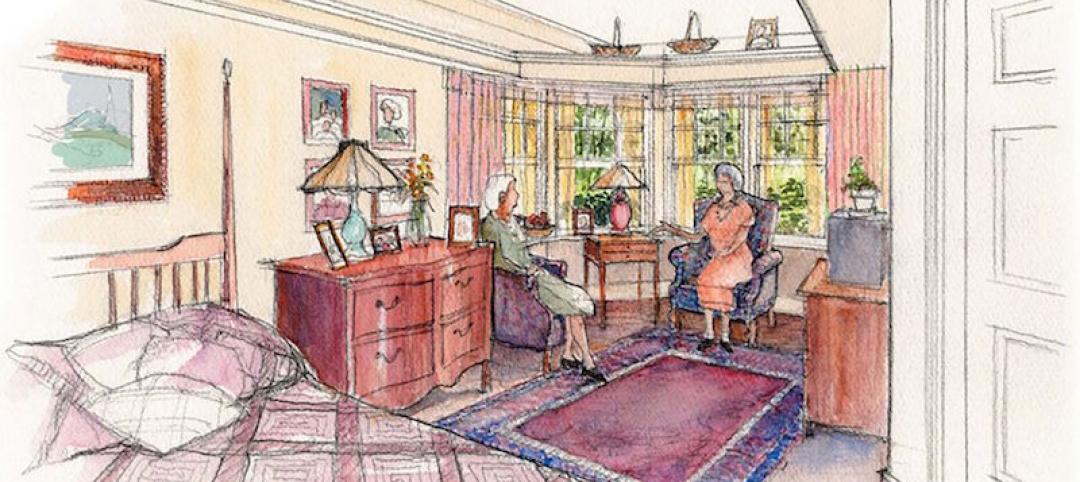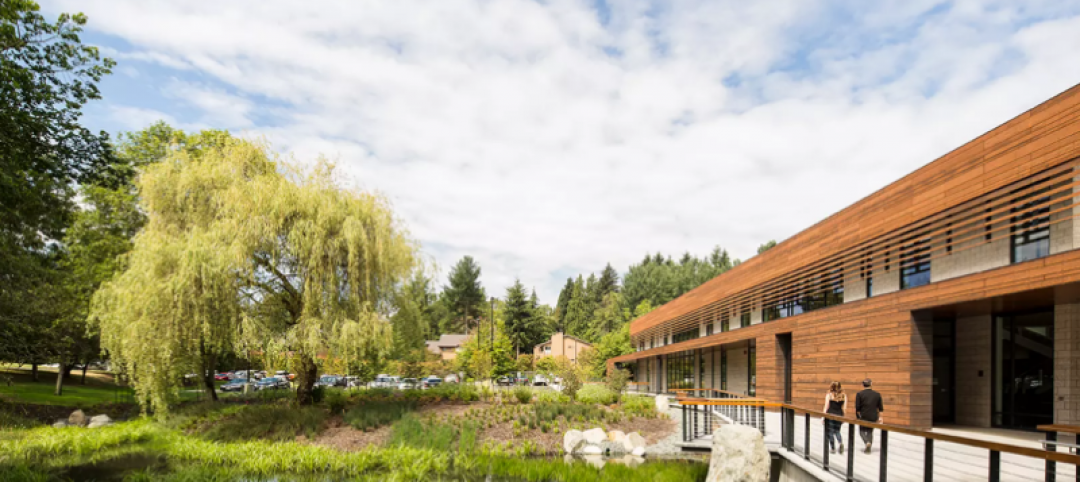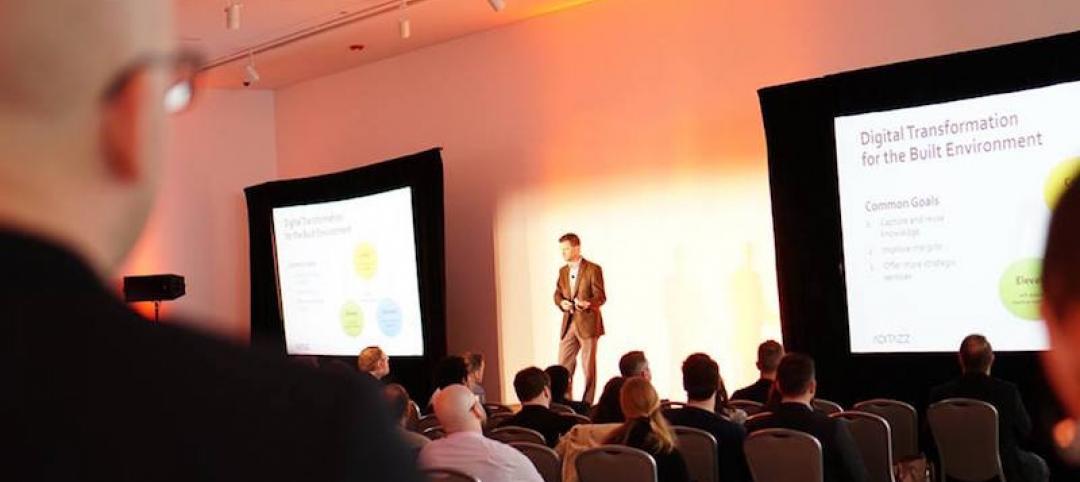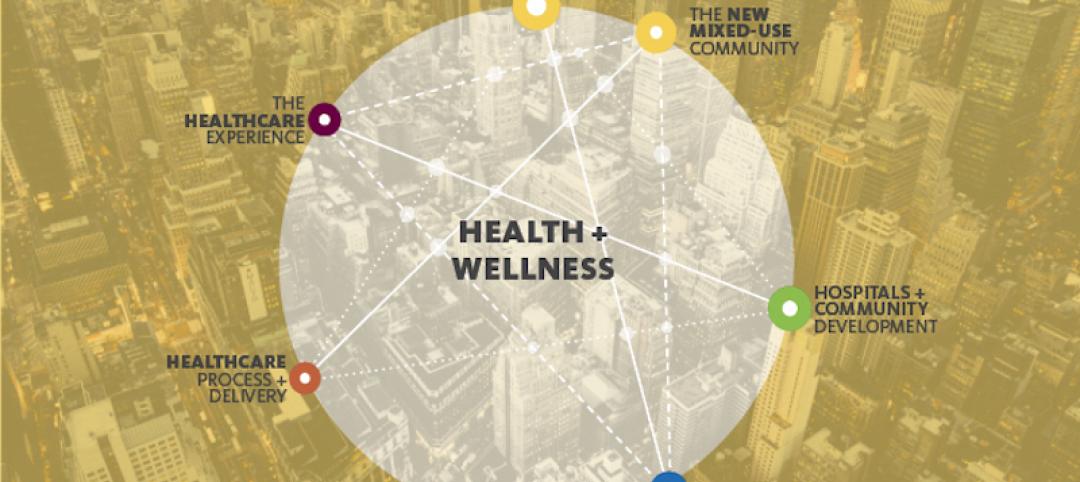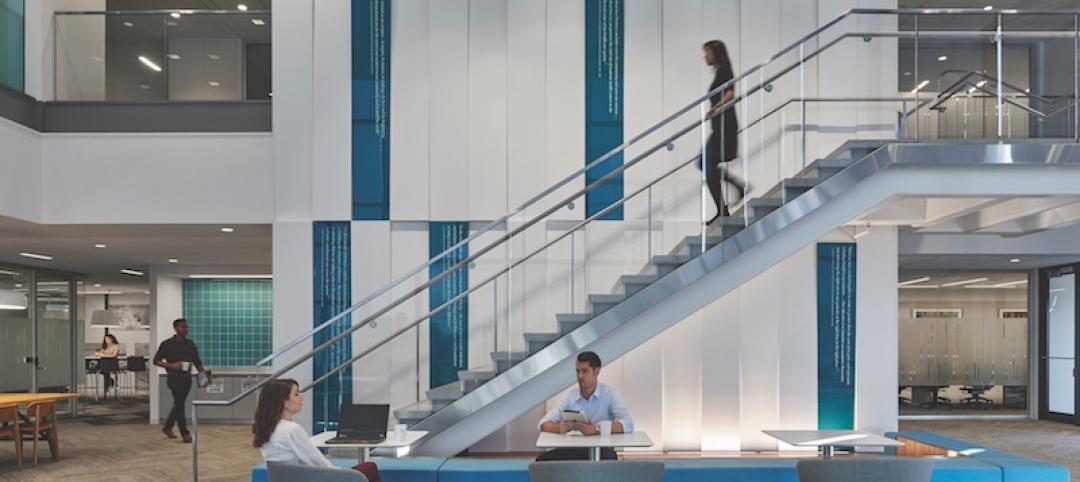On March 20, Meritus Health Center in Hagerstown, Md., submitted an emergency certificate of need to the state of Maryland’s Healthcare Commission, which one day later approved the hospital’s plan for its permanent 2 South Regional Infection Containment Wing to support COVID-19 infected patients.
Two days after that approval, Gilbane Building Company and Matthei & Colin Associates started assembling a building team to design and build this new facility. (A decade earlier, this same team built the 510,000-sf, 267-bed Meritus Medical Center in what at that time was a record 30 months.)
“Eight days after our initial call, our team was moving soil and digging foundations,” says Gary Orton, vice president and director of healthcare for Gilbane’s Mid-Atlantic division. “A project like this would typically take more than a year to conceptualize, design and build, but we didn’t have that kind of time.”
The steel framing was erected in six weeks and the building was airtight in two months. Streamlining was evident in the reduction of the construction punch list to seven open items, from 73.
The 12,560-sf addition was completed on July 31; the time between the start of designing this wing and its receipt of a temporary certificate of occupancy was only 120 days. The addition was accepting patients by early August.
Also see: A time-lapse video of the hospital wing’s construction
A STREAMLINED PROCESS
As this project proceeded, the first critical steps, according to Matthei & Colin, were defined as: identifying long lead materials/systems and get them ordered as the building was being designed; engaging County and State officials to develop a plan to streamline the permit processes, while ensuring quality and safety of the final product; and developing a schedule with major milestones identified along the critical path.
“We reinvented decision making and certification processes to recognize the realities of working remotely and serving the schedule to bring the facility online as quickly as possible for the community,” says William Heun, lead architect for the project and partner with Matthei & Colin Associates.
According to Gilbane, the fast-track schedule was abetted by bringing the Washington County (Md.) permit and inspections department into daily meetings with the Building Team, to identify areas of improvement and to minimize delays in the permitting and life safety processes.
Gilbane adds that the design-to-permit time for the addition, which normally would take six to nine months for a building this size, was whittled down to less than six weeks.
The team exercised Lean practices to coordinate and streamline processes, expedite permitting, and procurement, design, and construction.
Exterior metal stud wall framing was fabricated on the ground and lifted into place when the structural steel frame was erected. Millwork and casework were assembled in the largest and most complete units possible. Headwalls were prefabricated with all power, gases, outlets and light controls in place, reducing installation time and providing a single point of connection above the ceiling. Door hardware was installed on doors off site, to minimize carpenters’ time in the project area.
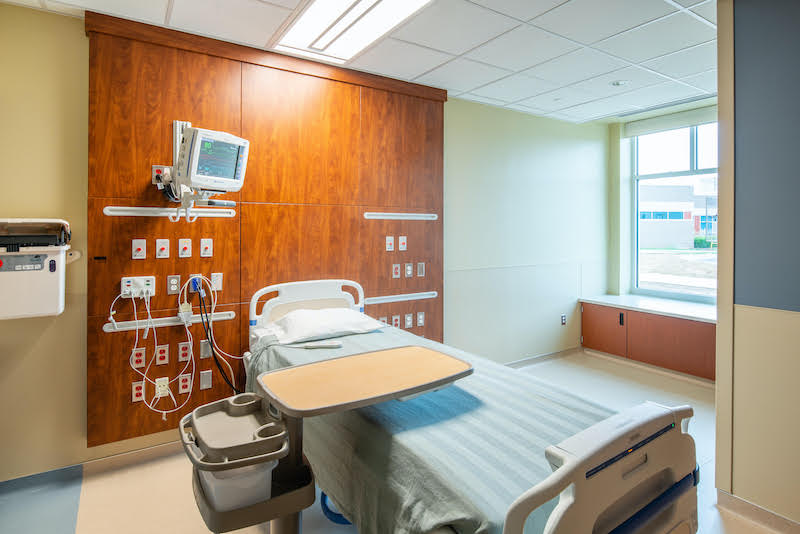
Among the project's time-saving measures was prefabricating the patient room headwalls. Image: Gilbane, courtesy of Meritus Health.
ADDITION SUITED TO TREAT ALL INFECTIOUS DISEASES
CM Cost Plus Fee was the delivery method deployed for this $12.5 million addition, which is the first of its kind in the region, with 20 ventilator-capable negative pressure isolation rooms designed and built to contain any type of infectious disease. A sophisticated nurse call system enhances connectivity between patients and the nursing staff. Eight of the wing’s rooms have corridor windows with integrated blinds.
The Building Team included Frederick, Seibert & Associates (CE, land surveying, and landscape architecture), Leach Wallace Associates (MEP engineer), and GRAEF-USA (SE). Other suppliers and subcontractors listed are Heffron, Cindell Construction, Davenport Commercial, Ellsworth Electric, Emmitsburg Glass, Johnson Controls, Kalkreuth Roofing and Sheet Metal, KBK Builders, Kinsley Manufacturing, Modular Services, PAINTech, Ruppert Landscape, Robert W. Sheckles, Siemens, Swisslog Healthcare Solutions, Triad Engineering, and Virginia Sprinkler.
Related Stories
Healthcare Facilities | Aug 2, 2017
The Patient-Centered Care Learning Center will help address the shortage of doctors in Missouri and the U.S.
The new BNIM-designed facility brings almost 100,000 sf of space for patient-centered care and classrooms.
Healthcare Facilities | Aug 1, 2017
An animal care facility expands with a human touch
New equipment and surgery suites exceed what’s found in most vet clinics.
Senior Living Design | Jul 31, 2017
How technology will change senior care
When a family member can no longer be cared for in their current home, they require specialized care that is only available in a long-term care center.
Healthcare Facilities | Jul 25, 2017
Healthcare technology: Preparing for the world of tomorrow
This article outlines the current data center landscape in the healthcare sector, industry trends, and challenges and opportunities new technologies present to the healthcare space.
Healthcare Facilities | Jul 24, 2017
AIA selects seven projects for Healthcare Design Awards
The facilities showcase the best of healthcare building design and health design-oriented research.
Accelerate Live! | Jul 6, 2017
Watch all 20 Accelerate Live! talks on demand
BD+C’s inaugural AEC innovation conference, Accelerate Live! (May 11, Chicago), featured talks on machine learning, AI, gaming in construction, maker culture, and health-generating buildings.
Healthcare Facilities | Jun 29, 2017
Uniting healthcare and community
Out of the many insights that night, everyone agreed that the healthcare industry is ripe for disruption and that communities contribute immensely to our health and wellness.
Industry Research | Jun 27, 2017
What does the client really want?
In order to deliver superior outcomes to our healthcare clients, we have to know what our clients want.
Building Team Awards | Jun 8, 2017
Quick turnaround: Partners HealthCare
Silver Award: A 2½-year project brings Partners HealthCare’s sprawling administrative functions under one roof.
| May 30, 2017
Accelerate Live! talk: Health-generating buildings, Marcene Kinney, Angela Mazzi, GBBN Architects
Architects Marcene Kinney and Angela Mazzi share design hacks pinpointing specific aspects of the built environment that affect behavior, well-being, and performance.


